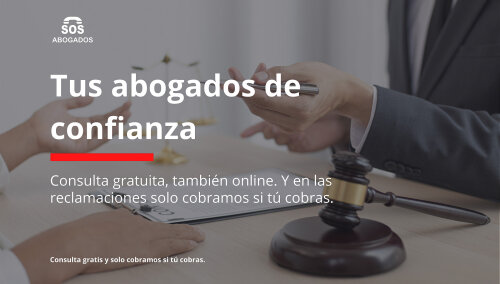Best Child Abuse Lawyers in Salamanca
Share your needs with us, get contacted by law firms.
Free. Takes 2 min.
Free Guide to Hiring a Family Lawyer
List of the best lawyers in Salamanca, Spain
About Child Abuse Law in Salamanca, Spain
Child abuse is a serious issue that affects children and families throughout Spain, including Salamanca. Spanish law provides strong protections for minors, making child abuse a criminal offense with significant legal consequences. Child abuse includes physical, emotional, and sexual abuse, as well as neglect. Local authorities, social services, and courts in Salamanca collaborate to identify, prevent, and address cases of child abuse. If you are dealing with a situation involving child abuse in Salamanca, it is important to understand your rights and seek appropriate legal guidance.
Why You May Need a Lawyer
Legal assistance is crucial in child abuse cases for several reasons. People may need to consult a lawyer if:
- You or someone you know suspects a child is being abused or neglected.
- You have been accused of child abuse and need to defend yourself against charges.
- Your child has been removed from your custody and you need help advocating for their return or visitation rights.
- You are navigating complex legal proceedings involving child protection, social services, or the juvenile court system.
- You require help with reporting, gathering evidence, or understanding your responsibilities as a mandatory reporter (such as a teacher or health professional).
- You are seeking compensation or support as a victim or family member affected by child abuse.
Local Laws Overview
In Salamanca, as elsewhere in Spain, child abuse is governed by national criminal, civil, and child protection laws. The Spanish Penal Code criminalizes all forms of abuse, including physical violence, psychological harm, sexual abuse, and neglect. Special procedures are in place for cases involving minors, including mandatory reporting, protective measures, and counseling.
The Child Protection Law (Ley Orgánica 8/2021) strengthens protections for minors by emphasizing the need for early detection, prevention, and intervention. Salamanca's local authorities, including municipal social services and specialized units of the Policía Nacional and Guardia Civil, respond to child abuse reports. Courts prioritize the well-being and best interests of the child in all judicial proceedings. Protective orders, supervised visitation, and temporary or permanent removal from the home are among the legal remedies available.
Frequently Asked Questions
What is considered child abuse in Salamanca, Spain?
Child abuse refers to any act or omission that causes harm or poses a risk to a child's physical, emotional, or psychological well-being. This includes physical violence, emotional abuse, sexual abuse, and neglect.
How do I report suspected child abuse in Salamanca?
You can contact local police (Policía Nacional or Guardia Civil), social services, or the emergency number 112 to report suspected child abuse. Reports can often be made anonymously.
What happens after a child abuse report is filed?
Authorities will investigate the situation, assess the child's safety, and may intervene to provide protection. This can include temporary removal of the child or other urgent measures. A formal investigation may lead to criminal charges or family court proceedings.
Can I lose custody of my child if accused of abuse?
Yes, if authorities determine there is sufficient risk, they can remove a child from parental custody temporarily or permanently, depending on the outcome of investigations and court proceedings.
What rights does my child have in an abuse investigation?
Children have the right to protection, to be heard in appropriate judicial proceedings, and to receive psychological and social support services.
Are there specific penalties for child abuse in Salamanca?
Yes, the penalties for child abuse in Spain depend on the severity of the offense. They can range from fines and community service to lengthy prison sentences for serious offenses such as sexual abuse or severe physical harm.
What if the accused abuser is a family member?
Spanish law treats intra-family abuse very seriously. Additional protective measures may apply, and the accused may be subjected to restraining orders or be barred from contact with the child during investigations.
Can teachers or doctors report child abuse without parental consent?
Yes, professionals who work with children are required by law to report suspected abuse, even without parental consent. Their reports are protected and confidentiality is maintained.
How can a lawyer help me in a child abuse case?
A lawyer can provide legal advice, represent your interests in court, help you understand your rights and responsibilities, assist with evidence collection, and support you through interactions with social services and authorities.
What should I do if I have been falsely accused of child abuse?
If you are falsely accused, it is important to seek legal representation immediately. A lawyer can help you gather evidence, prepare your defense, and ensure your rights are protected throughout the legal process.
Additional Resources
There are several organizations and governmental bodies in Salamanca and throughout Spain that offer support and guidance for those affected by child abuse:
- Ministry of Social Rights and 2030 Agenda (Ministerio de Derechos Sociales y Agenda 2030) - responsible for policies and protection services for children.
- Social Services (Servicios Sociales) of Salamanca - provide local support, counseling, and intervention services.
- Policía Nacional and Guardia Civil - law enforcement agencies with specialized units dealing with minors.
- Association for the Prevention of Child Abuse (Asociación para la Prevención del Maltrato Infantil - APIM) - offers guidance and preventive resources.
- Child Helpline (Teléfono ANAR) - offers immediate counseling and support for minors and adults concerned about child abuse.
Next Steps
If you or someone you know is facing a situation involving child abuse in Salamanca, it is essential to act promptly and responsibly:
- Contact local authorities or social services if a child is in immediate danger.
- Seek independent legal advice from a lawyer specialized in family and criminal law to navigate the complexities of your case.
- Preserve any evidence relevant to the case, including medical reports, photographs, or communications.
- Utilize available support services for emotional and psychological assistance.
- Follow all legal and social services guidelines regarding communication or visitation with the child while the investigation is ongoing.
Taking timely and informed action ensures the best possible outcome for the child and protects the legal rights of all involved. A lawyer can guide you through each step, making sure you understand your responsibilities and options during this challenging time.
Lawzana helps you find the best lawyers and law firms in Salamanca through a curated and pre-screened list of qualified legal professionals. Our platform offers rankings and detailed profiles of attorneys and law firms, allowing you to compare based on practice areas, including Child Abuse, experience, and client feedback.
Each profile includes a description of the firm's areas of practice, client reviews, team members and partners, year of establishment, spoken languages, office locations, contact information, social media presence, and any published articles or resources. Most firms on our platform speak English and are experienced in both local and international legal matters.
Get a quote from top-rated law firms in Salamanca, Spain — quickly, securely, and without unnecessary hassle.
Disclaimer:
The information provided on this page is for general informational purposes only and does not constitute legal advice. While we strive to ensure the accuracy and relevance of the content, legal information may change over time, and interpretations of the law can vary. You should always consult with a qualified legal professional for advice specific to your situation.
We disclaim all liability for actions taken or not taken based on the content of this page. If you believe any information is incorrect or outdated, please contact us, and we will review and update it where appropriate.














